|
Genres, Themes, Actors, and Directors:
- Alan J. Pakula Films
- Assassination
- Hume Cronyn Films
- Journalists
- Paula Prentiss Films
- Political Conspiracy
- Warren Beatty Films
Response to Peary’s Review:
Peary’s review of this “strangely satisfying” thriller by Alan J. Pakula largely focuses on its status as a “blueprint for conspiratorial machinery” and as the “definitive paranoia film”. Peary argues that the film effectively demonstrates how “even the cleverest, most resourceful individual cannot triumph against the corporation”, and that “truth [cannot] win out as in [Pakula’s next film] All the President’s Men.” While it’s true, as Peary notes, that the film’s “major flaws result from Pakula sacrificing story-clarifying scenes for pacing” (it’s often devilishly difficult, as in Pakula’s Klute, to follow what’s happening from one scene to the next), I also agree with him that in this case, “the information left out [simply] builds our paranoia and disorientation”. Visually, The Parallax View is a triumph: Pakula’s stylized direction (utilizing many longshots or extreme close-ups) and Gordon Willis’s masterful camerawork make this a film one doesn’t mind viewing key sections of several times. Especially notable are the opening assassination sequence atop the Space Needle in Seattle, and the deeply disturbing “brainwashing montage”, watched by Beatty when he visits the Parallax Corporation for the first time (see DVD Savant’s review for a more detailed analysis of this sequence’s progression). Beatty is fine and believable in the central role, but the supporting cast is even more impressive — particularly Paula Prentiss in an all-too-brief early role as Beatty’s former girlfriend (whose fear of being the next in line for assassination is realized all too quickly.)
Redeeming Qualities and Moments:
- Warren Beatty as Joseph Frady (nominated by Peary as one of the best actors of the year in his Alternate Oscars book)
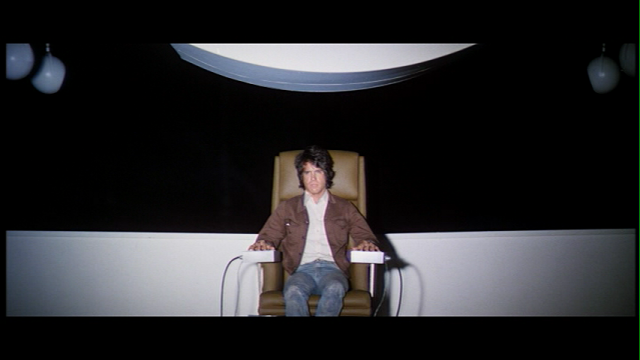
- Paula Prentiss in an early supporting role
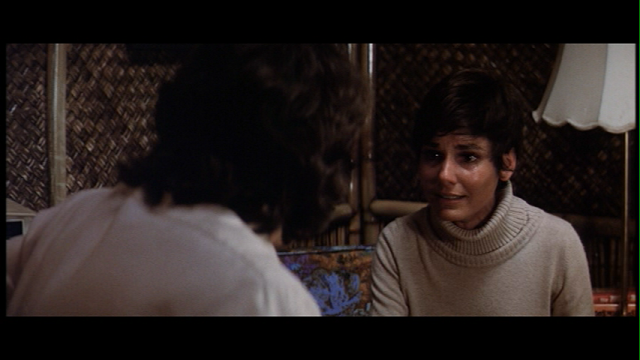
- Hume Cronyn as Beatty’s editor
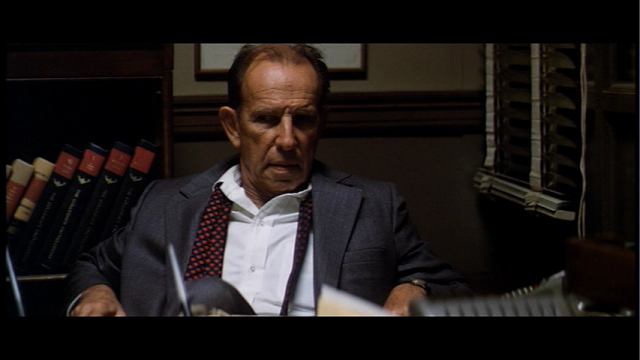
- The opening Space Needle assassination sequence
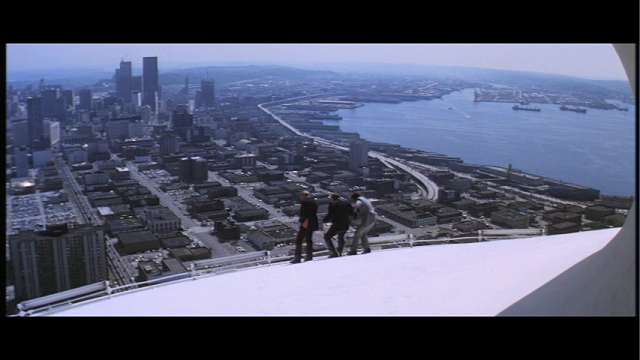
- The eerie brainwashing montage
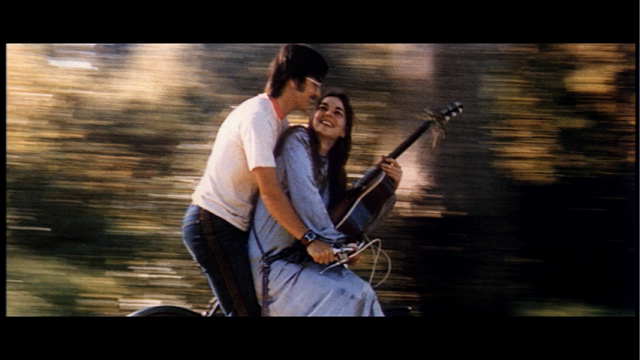
- Gordon Willis’s cinematography
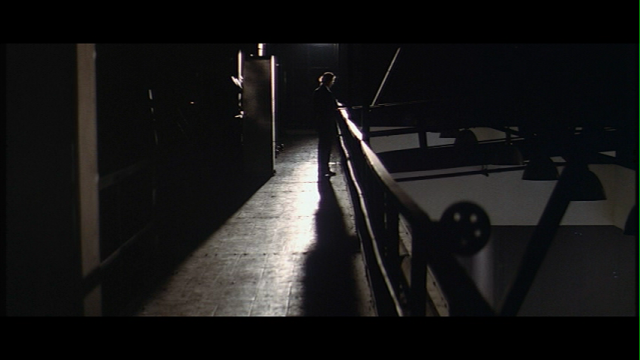
- Pakula’s effective directorial style
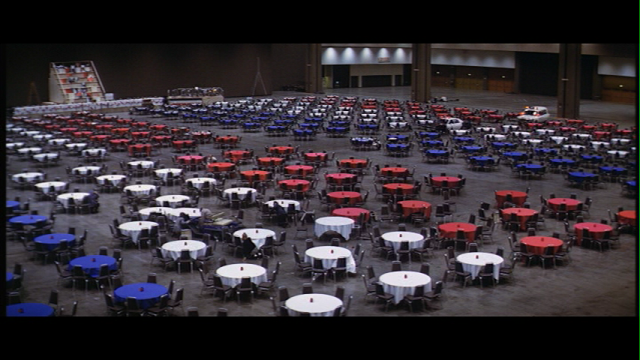
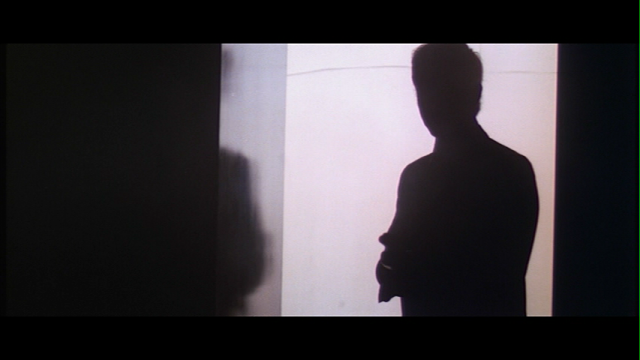
- Michael Small’s distinctive, trumpet-heavy score
Must See?
Yes, as a powerful thriller by a master director. Discussed at length in Peary’s Cult Movies 2, and nominated by Peary as one of the best movies of the year in his Alternate Oscars book.
Categories
- Good Show
- Important Director
Links:
|
2 thoughts on “Parallax View, The (1974)”
An absolute must. A riveting, unforgettable piece of cinema.
Not sure why I never got around to revisiting this one since its release. (Well, being a true ff, there’s not always time to revisit.) But seeing it again, its power once again struck a deep chord. It’s just remarkable work.
Beatty – who I’m not especially a huge fan of (tho I’m quick to say he’s amazing in ‘Splendor in the Grass’ and perhaps a few others) – turns in a gripping performance. As does everybody, really. The film is well cast. Prentiss is truly memorable – and her performance here reminds us of her versatility. Sad that she wasn’t given more opportunities to reveal her range. Particularly impressive, though, is Bill McKinney as the assassin who recruits Beatty into the Parallax Corporation. The initial meeting scene between the two of them is a highlight. (As William Daniels’ aide, William Jordan is a nice…sigh. But I digress.)
As with Pakula’s ‘Klute’, I don’t find ‘TPV’ (what a deliciously and appropriately confounding title) that hard to follow. Mainly because, in both films, we’re given the minimum information we need to follow stories that do not serve up easy answers. As audience members, we are as left in the dark as both films’ protagonists. We, therefore, live their realities. We have knowledge, but only so much. That’s how paranoia makes itself felt.
DP Willis’ work is nothing short of stunning. One could almost – as is often the case with Willis – watch the movie with the sound off and have a whole separate experience.
‘TPV’ had an intriguing triumvirate of writers at work: David Giler – of the ‘Alien’ series, Lorenzo Semple, Jr. (‘Pretty Poison’, ‘Three Days of the Condor’), and an uncredited Robert Towne. What an all-too-believable cocktail they served up!
Amazingly, this film still resonates strongly. The world is made of shadowy stuff like this – perhaps it always has been.
It was a long time between viewings of this one for me. But I think I’ll be back before too much time passes again.
An amazing film that’s a great personal favourite – I find it strange that it’s seldom mentioned when people are discussing or writing about great films of the 70s.
Paula Prentiss is one of (possibly the best of) the many actresses wasted by Hollywood. I didn’t realise until recently watching ‘California Split’ that she had an acting sister Ann who was just as good and just as wasted (and whose life went tragically off the rails).